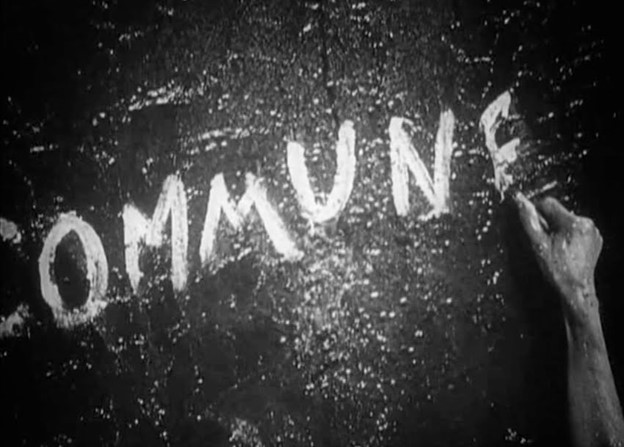The New Babylon (1929)
"The New Babylon" by Grigori Kozintsev & Leonid Trauberg
Like many of the other Soviet films of the 1920s, "The New Babylon" used a fictional account of non-fictional historical events to represent the opinions of the Communist Soviet state. In fact, the film goes directly to the source of the Communist ideology that represented the current political state. Most would assume this was Karl Marx, and it was. However, Karl Marx took his inspiration from the 1871 Paris Commune. Marx describes the Paris Commune as "A dictatorship of the proletariat." In order to understand "The New Babylon," you must at least have come contextual knowledge of this point in history. After the Franco-Prussian War of 1870-71, the city of Paris was surrounded by Prussian forces. Within the city, a civil war spread between the right-leaning bourgeois and the left-leaning socialist laborers. Eventually, the socialists took power in Paris and established a new governmental body. This body, or commune, established a separation of church and state, enacted worker-controlled labor production, and brought about social democracy. This commune, however, only lasted two months, as it was eventually suppressed by the French National Army. Despite being short-lived, it created the inspiration for Karl Marx's ideas of a socialist-communist society.
Despite being a historical representation of actual events, the film focuses on two characters. Louise is a saleswoman for a department store and is unhappy with the oppressive nature of her bourgeois boss. She meets a soldier named Jean who has lost any political affiliation and just wants to go home. After the surrender of French forces on the Prussian front, civil war breaks out and laborers get the help of the National Guard to take control of the city. Jean leaves for Versaille with the rest of the French army, while Louise and her new comrades enjoy the splendors of their new communal state. However, the French army returns to the city, captures the Communists, and executes them.
The film obviously glorifies the socialists, as they were the inspiration for the new contemporary Soviet state. Although there is a 'love story' within the film between Louise and Jean, it does not play out in any meaningful way. Rather, the film chooses to focus on actual historical events. In the last scene, the camera lingers over a chalk rendering of the words "Vive La Commune."




Comments
Post a Comment